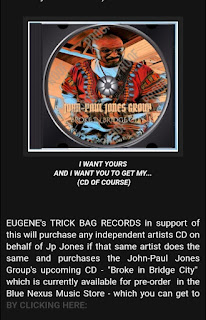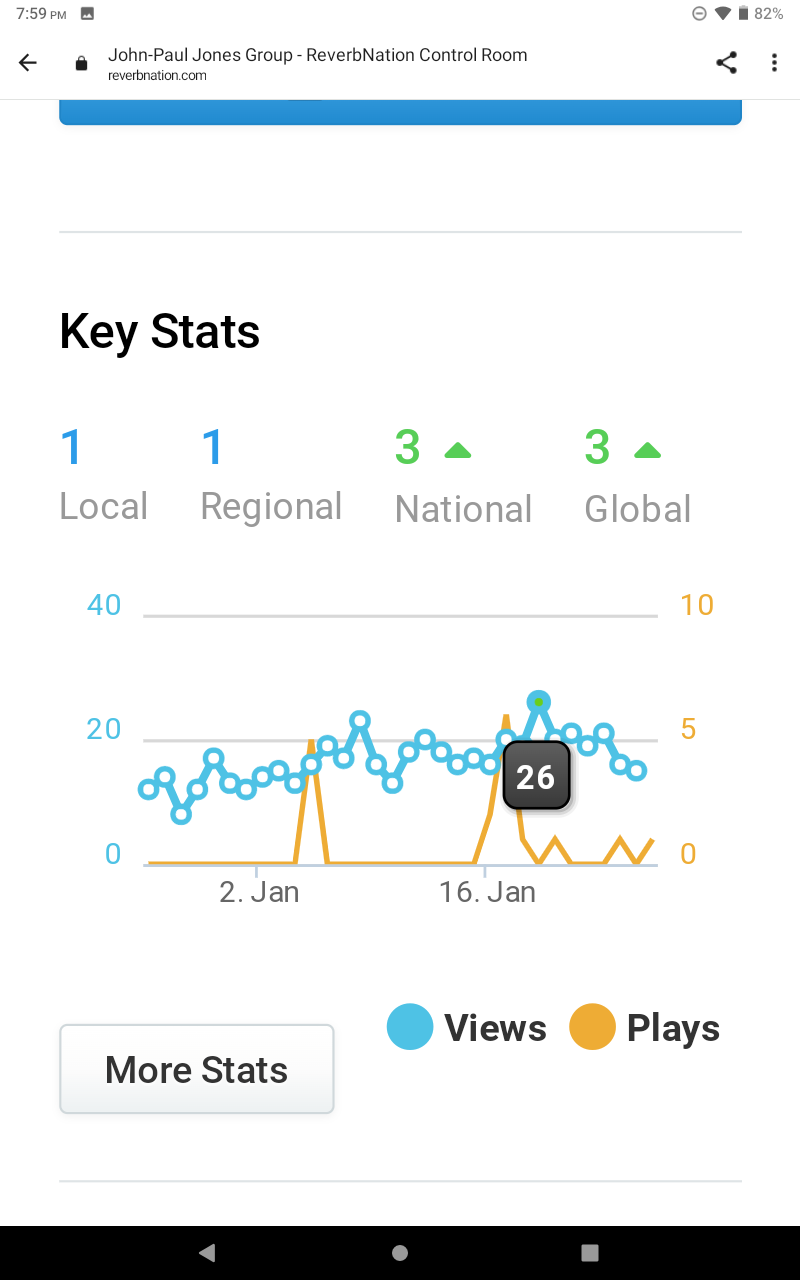TIP OF THE WEEK #03 - WORKING WITH LIVE MUSICIANS CONVERTED TO STUDIO MUSICIANS
As you may be aware of now, the John-Paul Jones Group is a band that consists of a revolving door of musicians who contribute at one time or another to either live performance, rehearsals or recording sessions.
When working within the context of a studio, its important to understand the dynamic the self-produced solo artist has with schedules and musicians. The first thing, to remember, NEVER ask your fellow musicians to play on your record for free in your studio... its something that should not happen unless you are all going to share in the expenses and profits of the project.
If its not in your budget to pay cash, then trade studio time or something tangible with them. I personally live in an area that musicians are traditionally not paid for such activity. Most of the musicians I know hold day jobs. We are what I call "semi-pro" meaning some of us make a partial living from playing music and some of us make zero living from it.
So by utilizing the median income per hour in my area I came up with a rate that was caparable to the jobs in my area that are non-music. Its just a mutual respect and way to show appreciation for those musicians who normally would of done it for free, but shouldn't.
The other aspect is remembering as the studio owner or leader of the project, your deadlines and plans for execution of your plans are yours to work with alone. You have to make sure that you understand that YOU are in control of when music is released and in what form. Many times when dealing with musicians who have not had a lot of experience in recording studios they are under the misunderstanding that once they are done with their part, they should get a copy of the take.
That is not case and you should NEVER release any piece of recording until you have done all your due diligence registered the copyright, secured the license fee for cover tunes, mixed and mastered or whatever else needs to be done.
Some musicians don't understand this, its your job as Producer to explain this to them. But in my case I am releasing material for Eugene's Trick Bag Records. Which is the label for this particular project I am working on.
Be diplomatic but firm, if you set a release date of Jan 1st, 2018 then don't give your drummer or bass player a copy on september 2nd 2017 and have it leaked.
When you have a plan, as producer, the studio musicians you hire are only one part of the project and they will learn that you need to be consistent with your marketing efforts with your release dates, and with your distribution. So that even though they spent an hour recording a tune, there are many many more hours spent doing a lot more than just recording.
Its your job as band leader, label owner, studio owner, or producer to make this clear and concise. Once you have music read for release do not undermine impact of the release of your material by giving it away online. We will talk about social media and release of demos in a future TIP OF THE WEEK.


Comments
Post a Comment
Thanks for commenting. Your support is appreciated. Please subscribe to the blog.